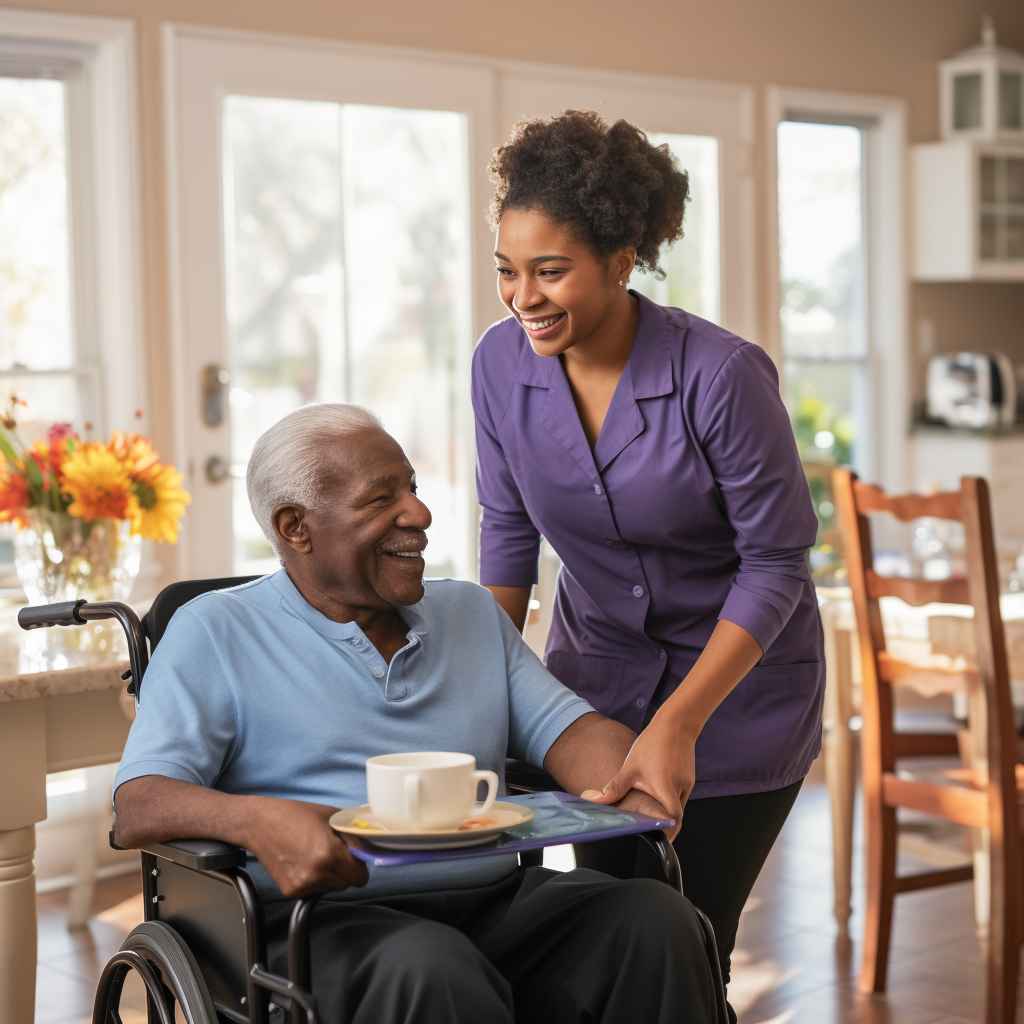Recognizing the Signs Indicating Seniors Might Need Support While Aging

For many seniors, the idea of “aging in place,” or continuing to live in their own house as they age, is very appealing. It’s an innate desire for comfort, familiarity, and independence. But as they age, their needs might change, necessitating the need for support in the home, such as elder care.
For loved ones and seniors, it is essential to identify this need earlier rather than later in order to help guarantee the ability to safely and comfortably age in place.
Modifications in Physical Mobility
Loved ones should be alert for changes in gait, problems with balance, or trouble performing activities of daily living (ADLs) like showering, dressing, or getting out of bed. If these things are noticed, it may become necessary to use elder care services and mobility aids like walkers or canes or to make changes to the home’s layout, like grab bars and ramps.
Dementia and Cognitive Regression
Memory loss, disorientation, and trouble finishing routine tasks could be signs of cognitive decline. Other signs could include misplacing prescriptions or becoming disoriented in familiar areas. By monitoring these changes and seeking medical advice early, it is possible to manage conditions like dementia or Alzheimer’s disease more successfully.
Neglecting Nutrition and Personal Hygiene
Seniors who start skipping meals, exhibit symptoms of malnutrition, or fail to maintain proper personal hygiene may be struggling and need assistance from elder care to carry out these everyday duties. If loved ones notice these issues, it’s vital to explore home care options, as they can assist with these issues and more, ensuring seniors have all the support they need.
Reduced Upkeep of the Home
When loved ones visit, they should observe the state of the home. If it is disarray, deterioration, or appears unclean, it could suggest challenges in keeping up with general housekeeping tasks. Unfortunately, a home in this condition is both a safety risk and a health risk for seniors. The good news is that elder care services can also assist in this area, making sure the home is a safe and comfortable space for seniors.
Reluctance to Talk About Health Issues
Some seniors might be reluctant to admit when they need help because they don’t want to burden their loved ones or lose their independence. It’s important for loved ones to promote candid dialogue regarding future plans, care preferences, and health-related issues. This can be done in a variety of ways, including respecting their autonomy and providing them with resources and support.
Additionally, the topic of elder care should also be considered, with loved ones explaining to seniors the many ways that home care can help.
Seniors who choose to age in place can find it rewarding and empowering, but it’s critical for loved ones to maintain a watchful eye and accommodate their evolving needs by assessing when they need additional elder care services. With the right support in place, seniors continue to age gracefully in the comfort of their own homes while preserving their independence, safety, and well-being.
If you or an aging loved one are considering Elder Care in Old Bridge Township, NJ, please contact the caring staff at Lares Home Care (732) 334-3323.
Sources:
- https://2ndfamily.com/10-signs-your-loved-one-needs-additional-caregiving-support
- https://www.nia.nih.gov/health/caregiving/does-older-adult-your-life-need-help
- https://health.usnews.com/senior-care/caregiving/articles/identifying-the-right-time-for-senior-care
- The Best Ways To Keep Your Senior Parent From Getting Bored In The House - April 7, 2025
- Home Care Helps Seniors Eat Healthy Meals - March 26, 2025
- Senior Home Care Helps Seniors With Low Vision Live Independently - March 6, 2025
